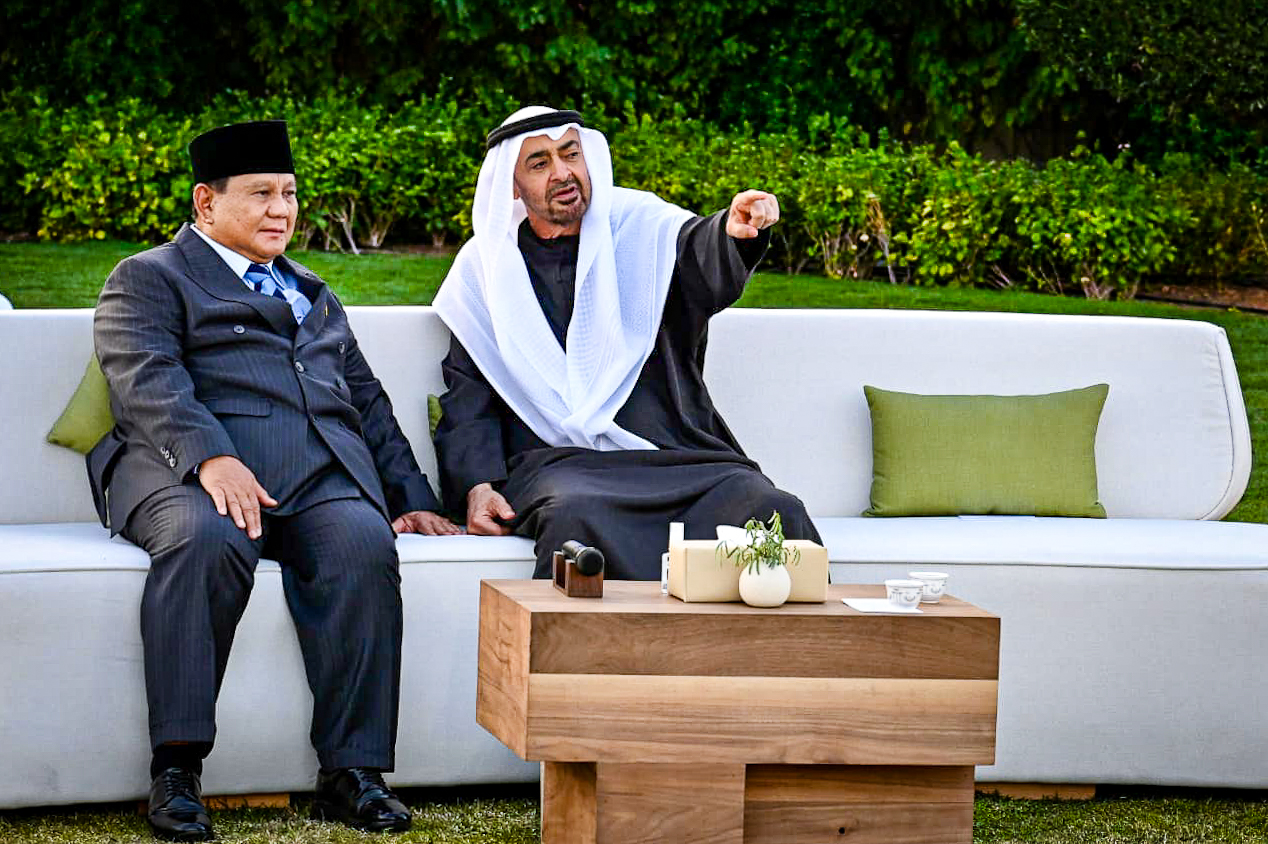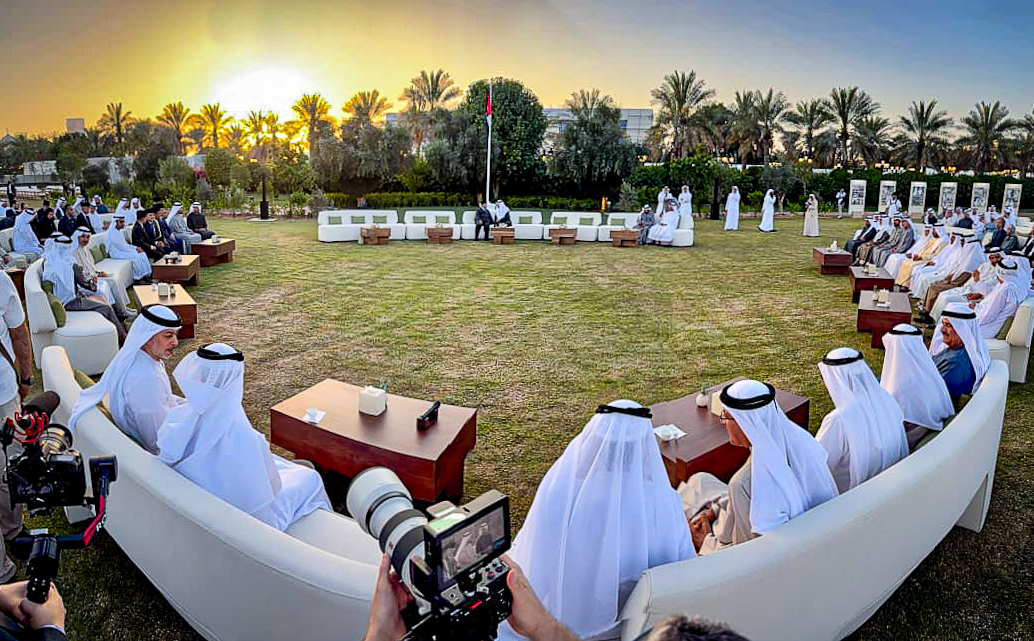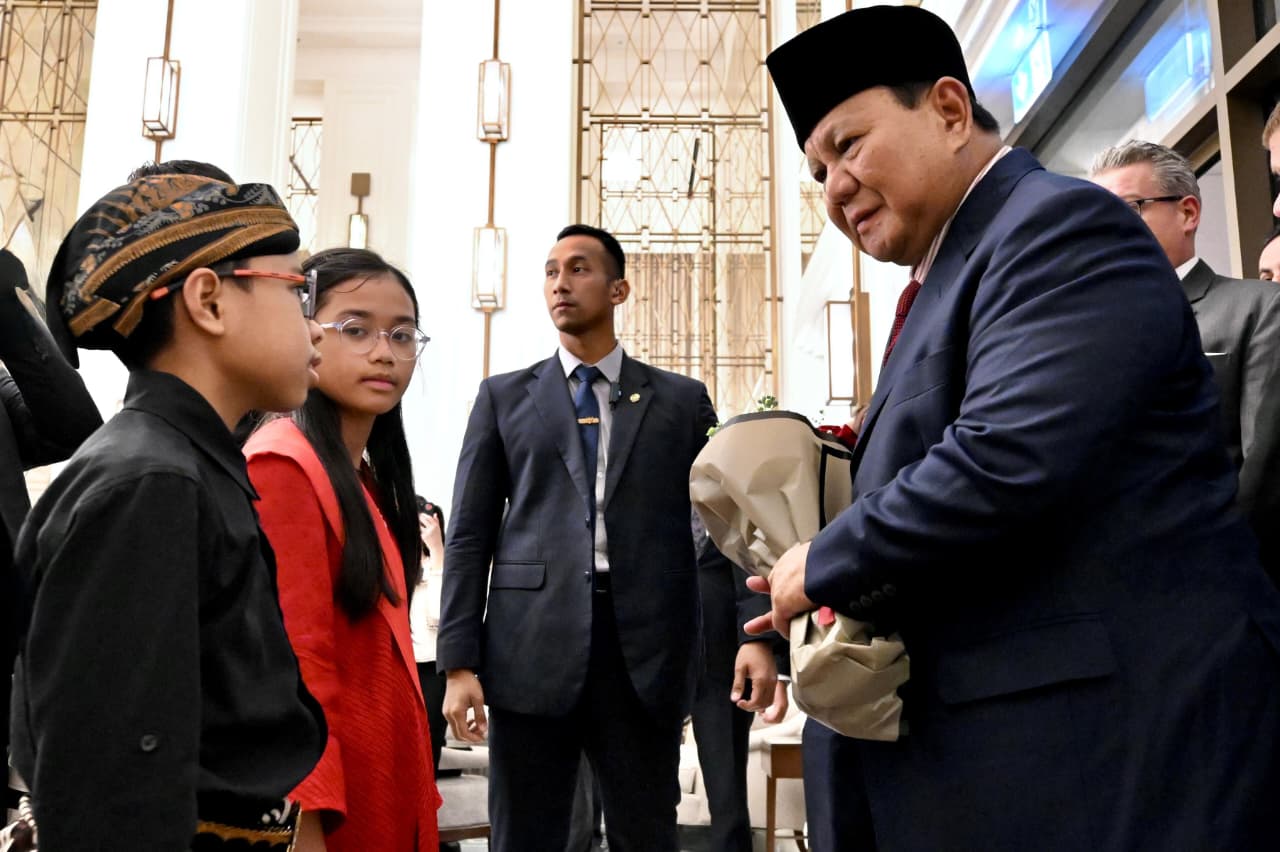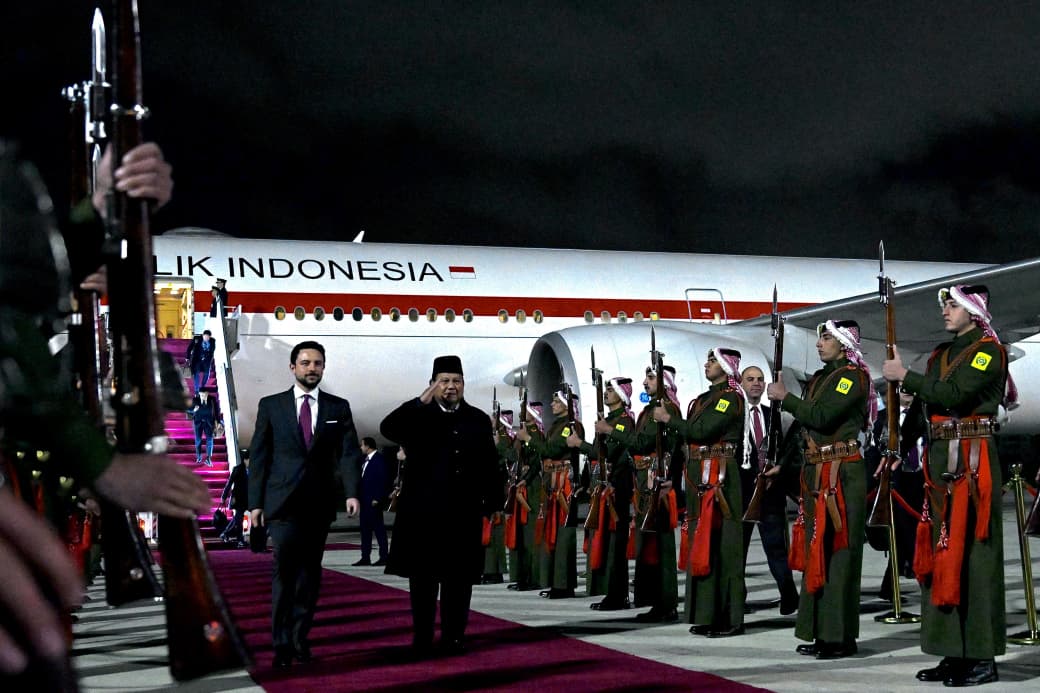Industry Minister Urges the People to Promote 11 Local Coffee
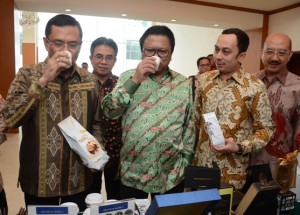
Minister of Industry and Deputy Speaker of People’s Consultative Assembly have a cup of coffee (10/3)
There are still quite many opportunities to develop national coffee industry because coffee consumption is still a huge potential and worlds coffee demand continues to climb.
Moreover, Indonesia is the worlds third largest coffee producer after Brazil and Vietnam with the average production at around 685,000 tons per year or 8.9 percent from the worlds coffee production.
Ministry of Industry Saleh Husin said that the development of middle class people and a change in Indonesian lifestyle have also contributed to boost coffee consumption in the country by more than 7 percent annually.
Therefore, he said, in order to increase the added values, processing industries – be it big, medium, and small businesses – must be encouraged and supported by the Government and the public.
We have 11 local specialty coffee, or commonly known as geographical indication, including Gayo Coffee, Sindoro-Sumbing Coffee, and Toraja Coffee. Moreover, there are coffee which are processed directly by farmers and farmer groups. One concrete support that the people could give is by buying local specialty coffee when visiting a certain region, Saleh said at the opening of the 9th General Meeting of the Member of Association of Indonesian Coffee Exporters (AEKI) in Jakarta, on Thursday (10/3).
Saleh also said that until now there are 11 Indonesian coffee which have geographical indication, among others, Arabica Gayo, Sumatra Arabica North Simalungun, Robusta Lampung, Arabica Java Preanger, Java Arabica Sindoro-Sumbing, Arabica Ijen Raung, Arabica Kintamani Bali, Arabica Kalosi Enrekang, Arabica Toraja, Arabica Flores Bajawa, and Liberika Tungkal Jambi.
Moreover, Saleh added, Indonesia has also various special coffee which are worlds famous, including Luwak Coffee that have unique flavor and aroma as the Indonesian primary geographical indication.
On that occasion, Saleh also mentioned the enthusiasm of young people to travel to many parts of the country and more and more young people love travelling.
The joy of travelling can be manifested by drinking local coffee. Do not forget to buy souvenirs. Take a selfie when drinking the coffee and mention the origin of the coffee in the caption and upload it to social media. A simple promotion like that is effective to promote coffee industry, Saleh Husin said, while urging the people to bring several packages of Indonesian coffee when traveling abroad as souvenir for colleagues and friends.
Saleh noted that prospects for the development of coffee processing industry in Indonesia is still quite good, considering that Indonesian coffee consumption is 1.2 kg per capita per year or still below other coffee importing countries such as the United States with 4.3 kg, Japan with 3.4 kg, Austria 7.6 kg, Belgium 8.0 kg, Norway with 10.6 kg, and Finland with 11.4 kg per capita per year.
The export of coffee products in 2015 reached US$ 356.79 million, or increased by 8 percent from the previous year.
The export of coffee processed products are dominated by instant coffee, extracts, essences and coffee concentrates which are exported to the Philippines, Malaysia, Thailand, Singapore, China, and the United Arab Emirates.
Meanwhile, import values of processed coffee products in 2015 reached US$ 106.39 million.
The biggest importing countries are Malaysia, Brazil, India, Vietnam, Italia, and the United States.
However, in spite of the imports, the international trade balance of Indonesias processed coffee products still has a surplus of US$ 250.40 million.
The Minister also encouraged the development of domestic coffee industry from the upstream to downstream so that it will increase added values and competitiveness of Indonesian coffee in the global market and it will also offset the exports flow on coffee bean which is still dominant than domestic processing coffee.
The development of national coffee industry needs to be promoted becauce currently we are only able to absorb about 35 percent of the national coffee production and the rest of 65 percent is still exported in the form of beans, Saleh said.
Also attending the event were Deputy Speaker of People’s Consultative Assembly Oesman Sapta Odang and officials of AEKI led by its Chairman Irfan Anwar. (Humas Kemenperin/ES)(RAS/EP/YM/Naster)





